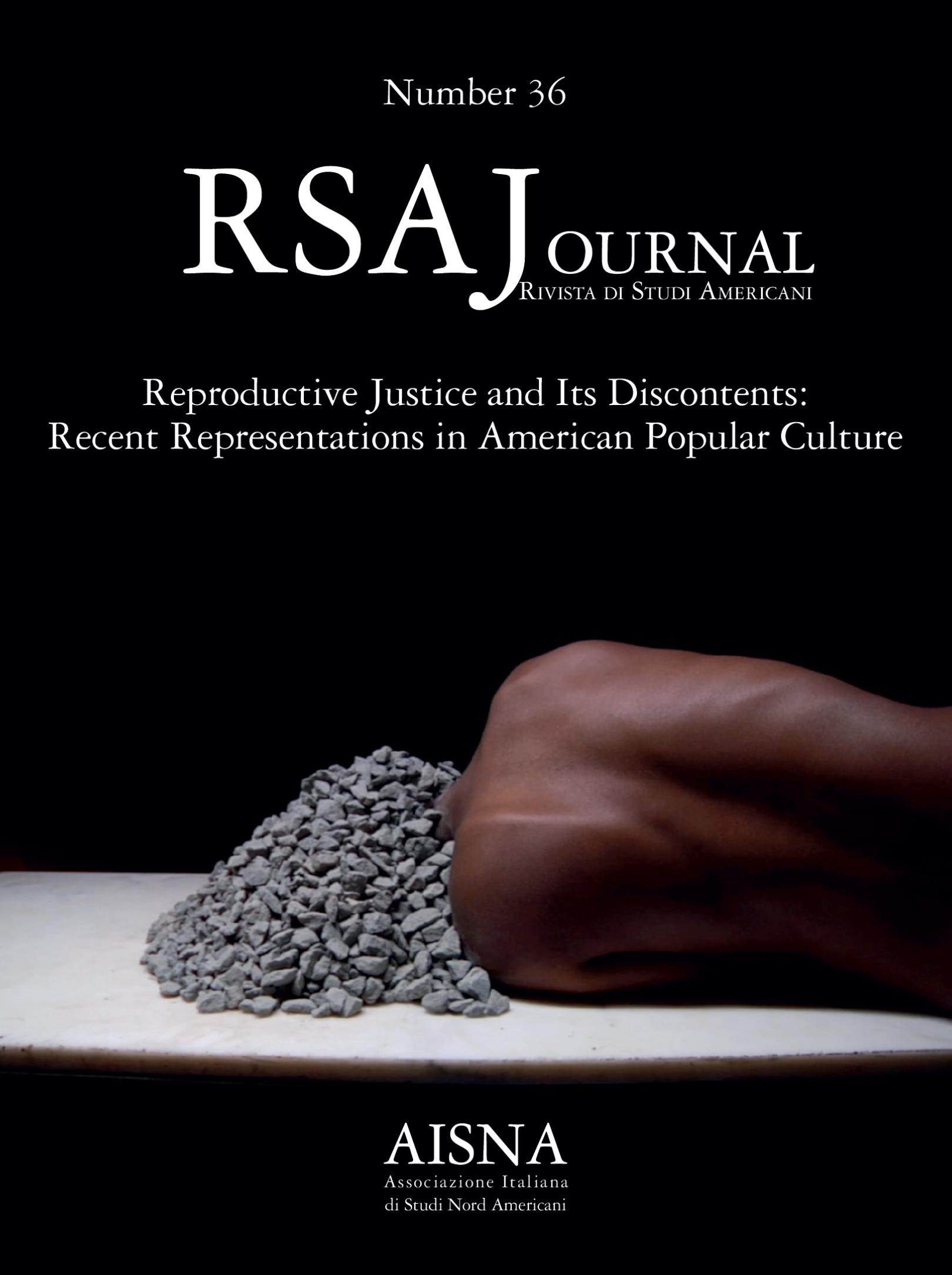“I Hear No Men Talking About It”
Male Stand-Up Comedians on Abortion
DOI:
https://doi.org/10.13135/1592-4467/11709Keywords:
Stand-up Comedy, Abortion, Gender, Stereotypes, OutsiderhoodAbstract
In his 2023 stand-up special, From Bleak to Dark, comedian Marc Maron wonders why men do not address the Supreme Court’s decision in Dobbs v. Jackson Women’s Health Organization, which ended the constitutional right to abortion in the United States. The question of who is, or should be, entitled to take a stand on the right to abortion, is up for debate, but so is Maron’s claim that there are “no men talking about it.” Quite a few male comedians have presented their – fictitious or real – views on reproductive justice on the stand-up stage, not only in their post-Roe shows but also over the course of the past few decades. Stand-up comedy is a unique forum for dealing with themes like gendered vulnerability and power relations, even exposing views that would be considered offensive or even unlawful outside of the comedic context. Narratives produced and reproduced in society are popularized in standup comedy, and when they reach streaming services like Netflix, they reach huge audiences. Seeing stand-up comedians as potential public intellectuals (Kunze and Champion), this article explores how groups and communities are constructed and deployed in stand-up (Brodie; Chesters), focusing on how US male comedians navigate the social debates on the issue of abortion in their stand-up shows. While this article acknowledges that the “definition of reproductive justice goes beyond the pro-choice/pro-life debate” (Ross and Solinger 9), it will focus specifically on abortion for two reasons. First, extending the discussion to parental rights and reproductive justice more generally would require a longer discussion than is possible in the scope of this article, and second, focusing on abortion reflects more precisely what is found in the comedic material of male stand-up comedians in the United States. Through analyzing a few examples from US comedians, I argue that while stand-up comedy on the theme of abortion by men often reinforces patriarchal norms, attitudes, and stereotypes, it also provides a platform for contesting them. I also argue that this dual function operates through a rhetorical practice that positions men as outsiders. While this rhetoric often deems women responsible for both pregnancies and abortions, as “public intellectuals,” stand-up comedians have the potential to deconstruct narratives of unequal gender relations and related social discussions.
Downloads
Published
Issue
Section
License
Copyright (c) 2025 Tuula Kolehmainen

This work is licensed under a Creative Commons Attribution-NonCommercial-NoDerivatives 4.0 International License.
RSAJournal applies a CC BY-NC-ND license to all its contributions. This license enables reusers to copy and distribute the material in any medium or format in unadapted form only, for noncommercial purposes only, and only so long as attribution is given to the creator. CC BY-NC-ND includes the following elements:
- BY: credit must be given to the creator.
- NC: Only noncommercial uses of the work are permitted.
- ND: No derivatives or adaptations of the work are permitted.
Authors who publish with this journal agree to the following terms:
- Authors retain the copyright and full publishing rights for their submissions to the journal.
- Authors grant the journal right of first publication with the work simultaneously licensed under a Creative Commons Attribution-NonCommercial-NoDerivatives 4.0 International License that allows others to share unedited work for non-commercial purposes with an acknowledgement of the work's authorship and initial publication in this journal.
- Authors are able to enter into separate, additional contractual arrangements for the non-exclusive distribution of the journal's published version of the work (e.g., post it to an institutional repository or publish it in a book), with an acknowledgement of its initial publication in this journal.




